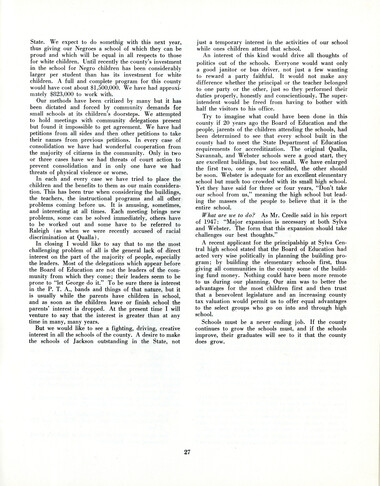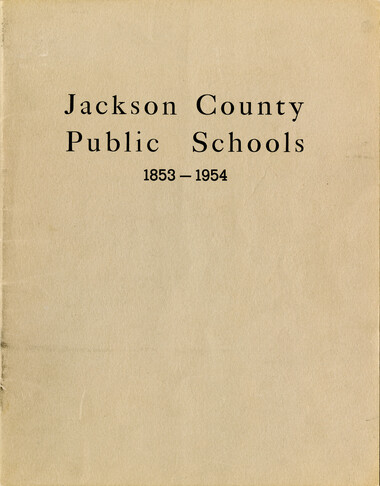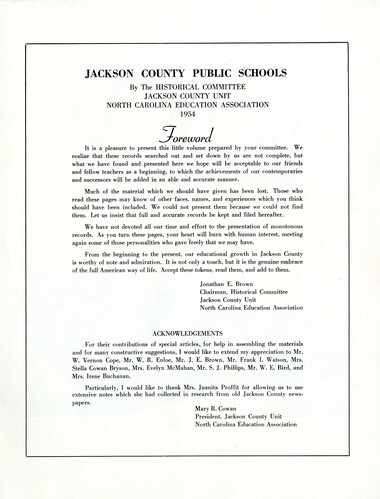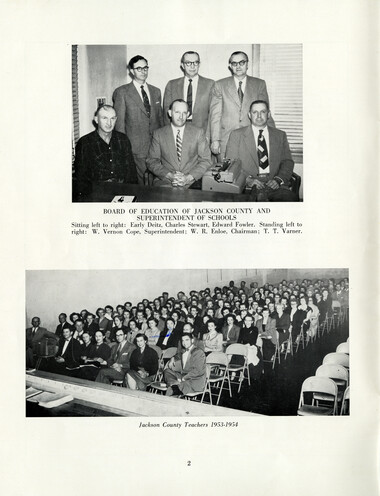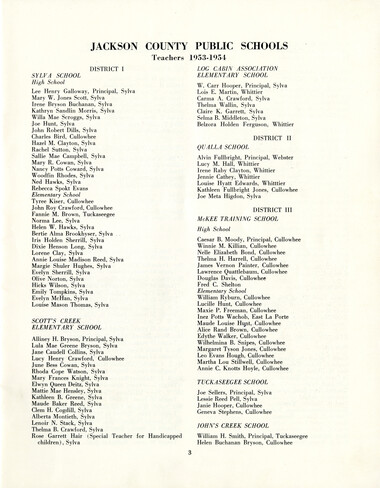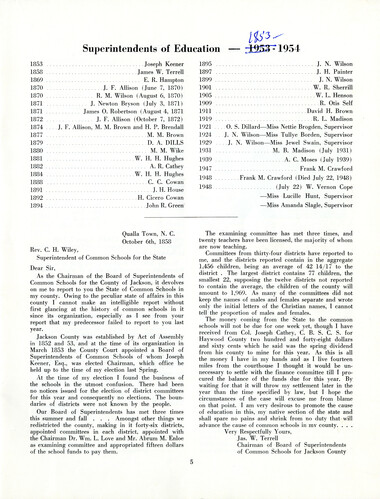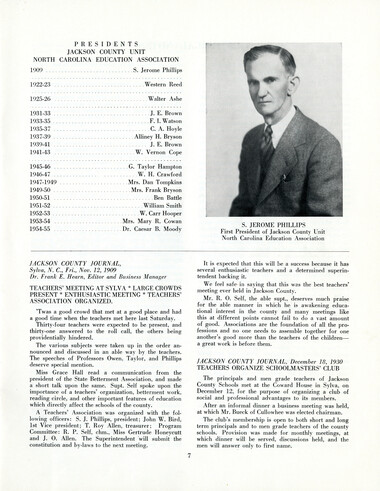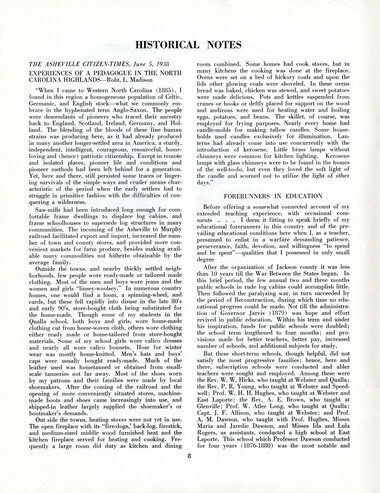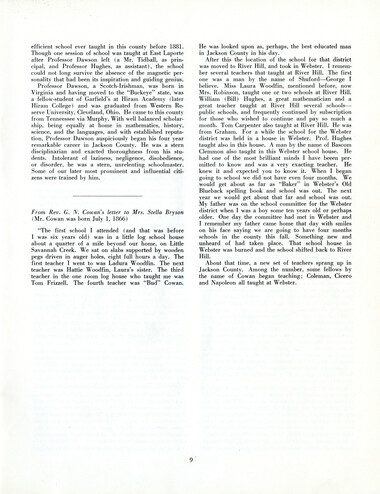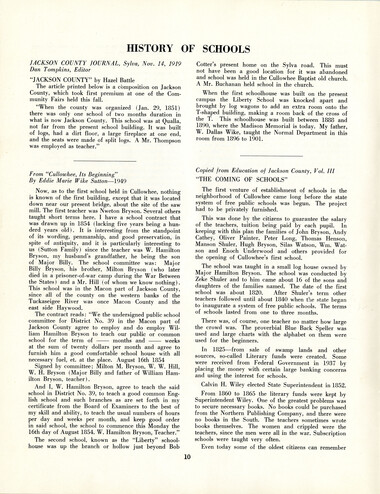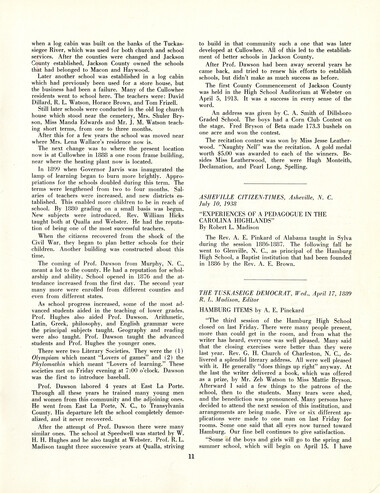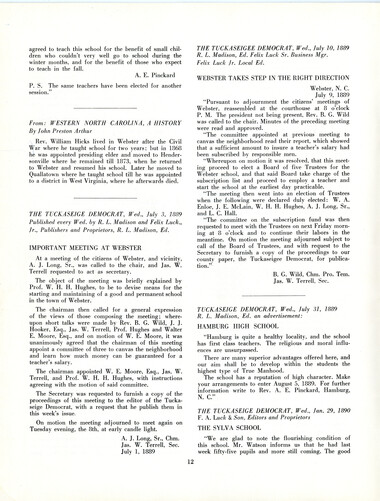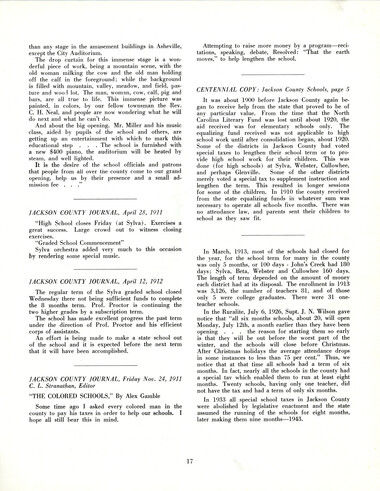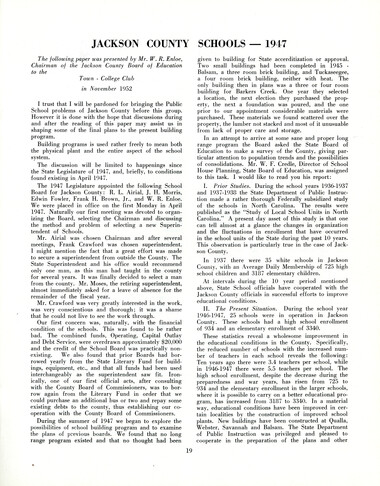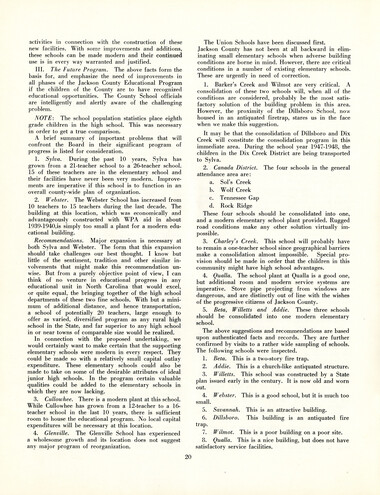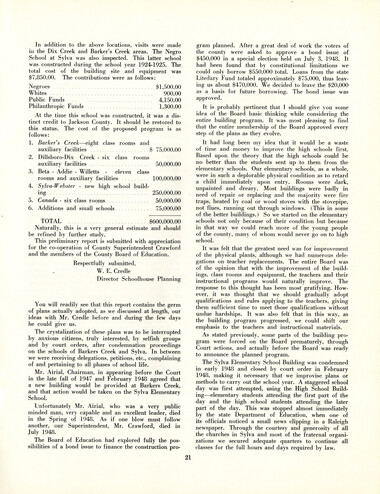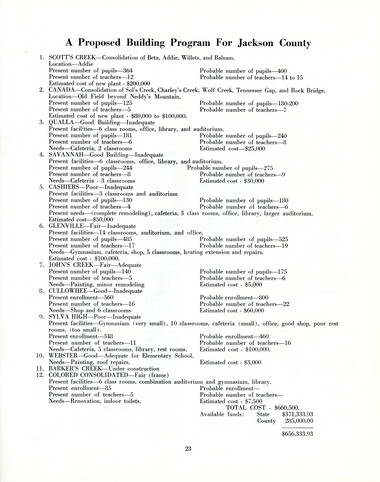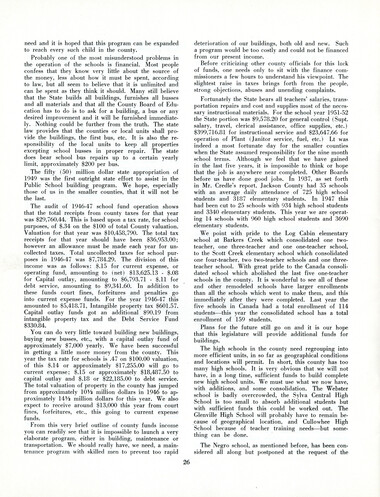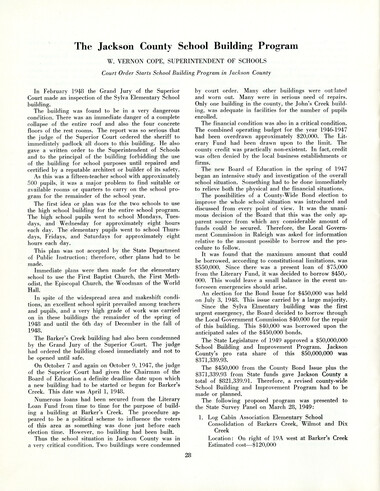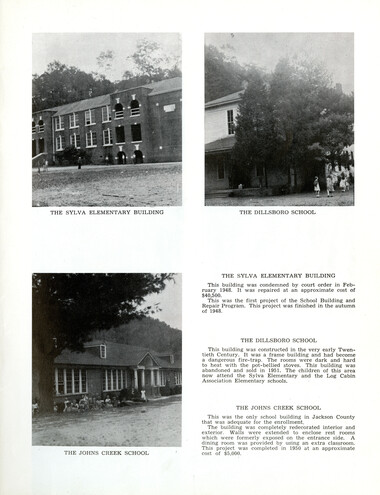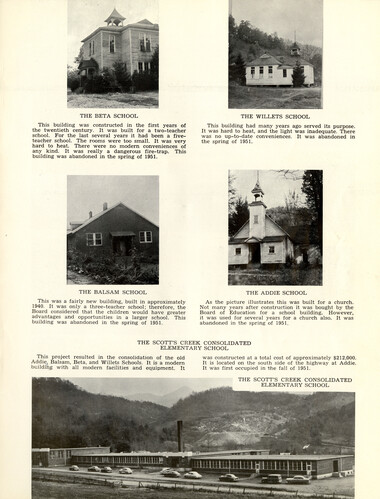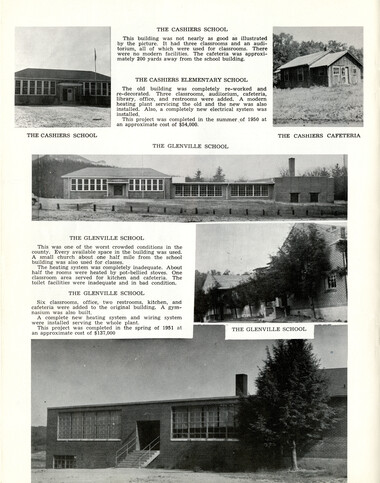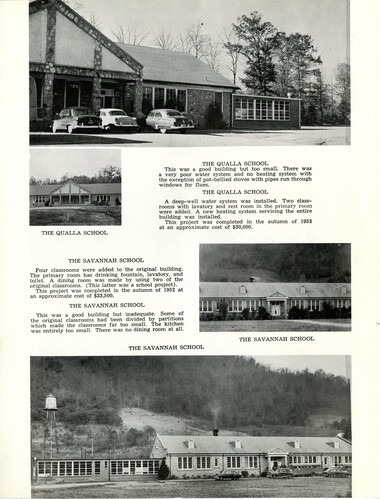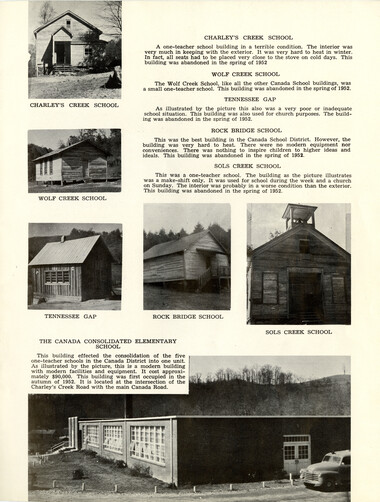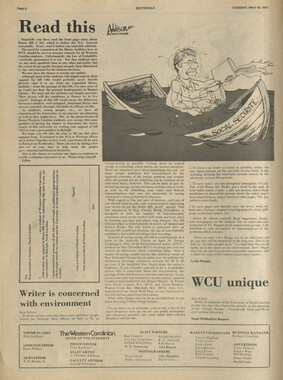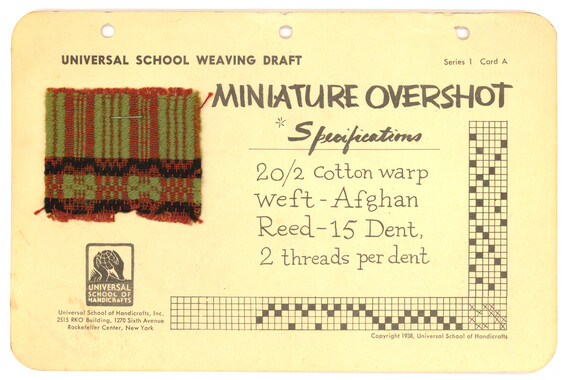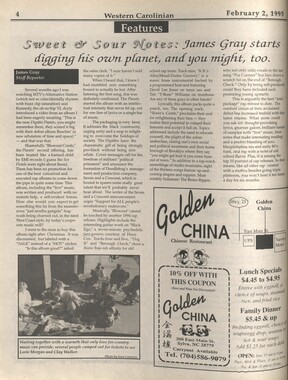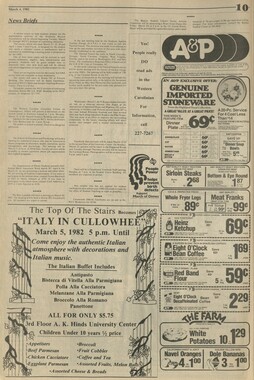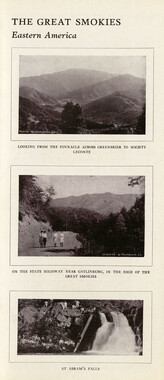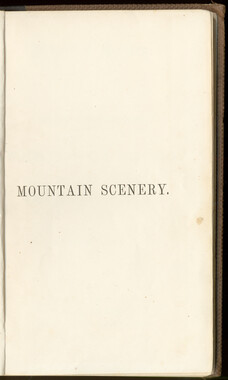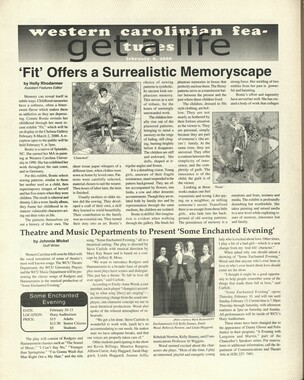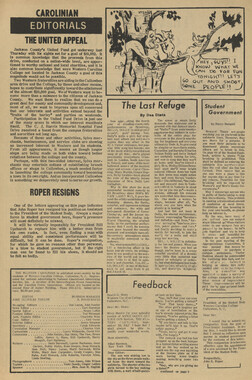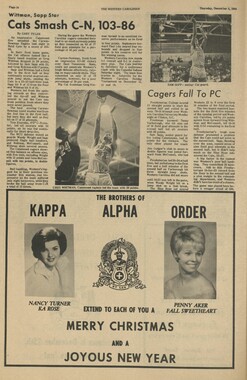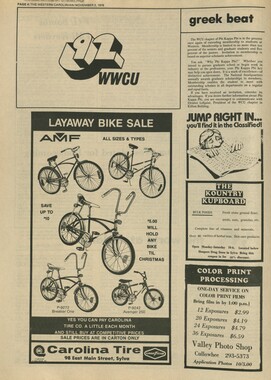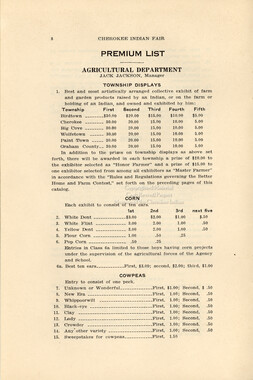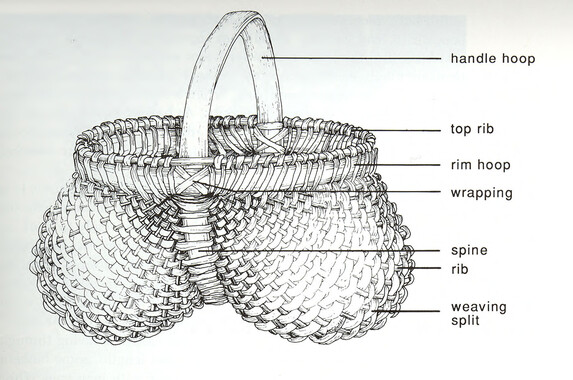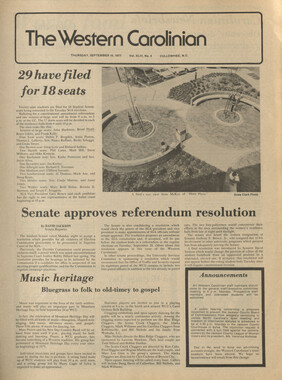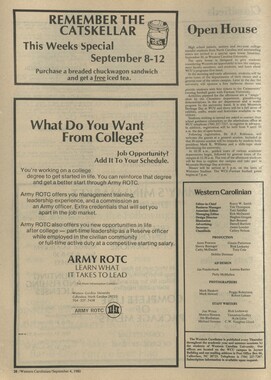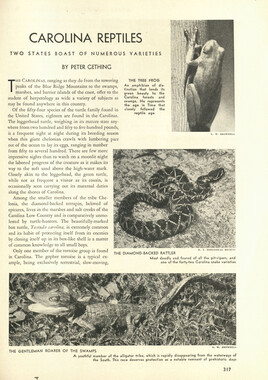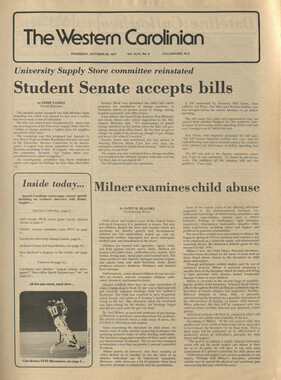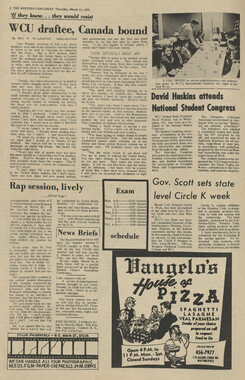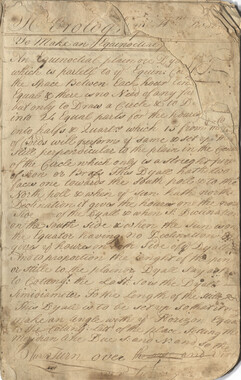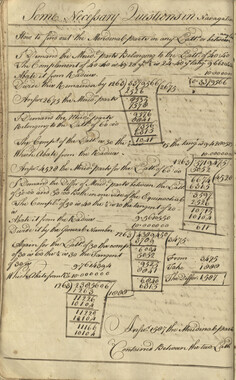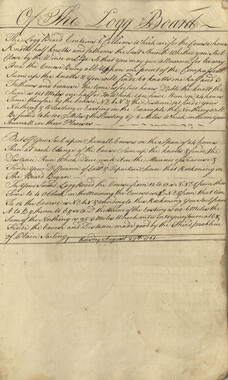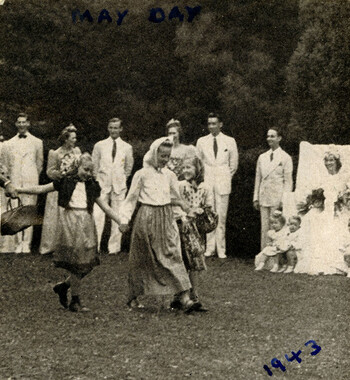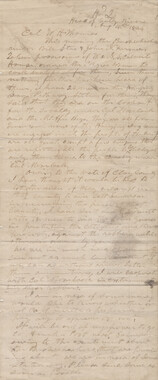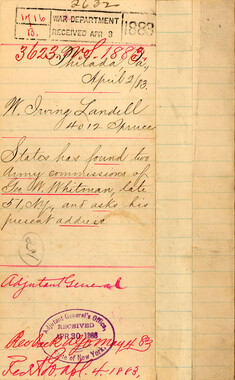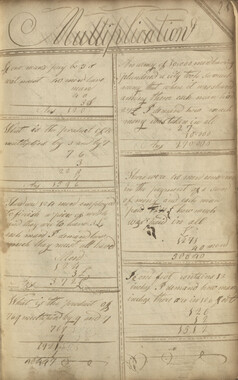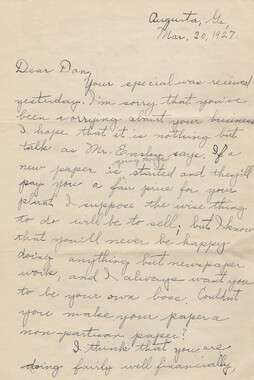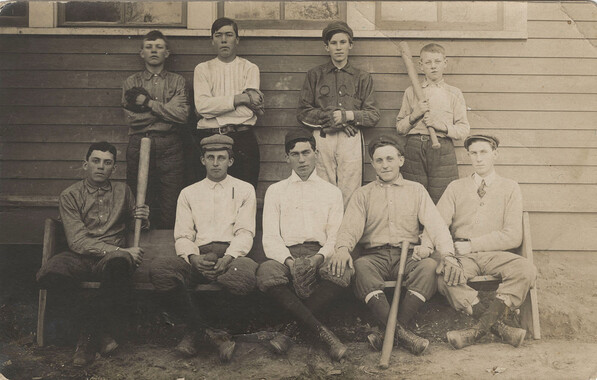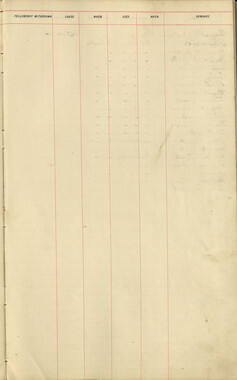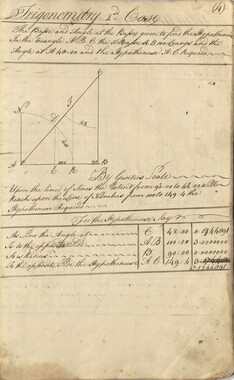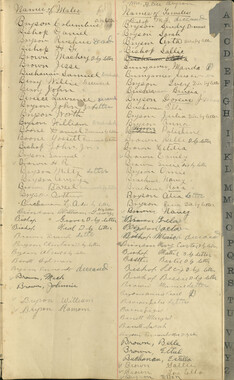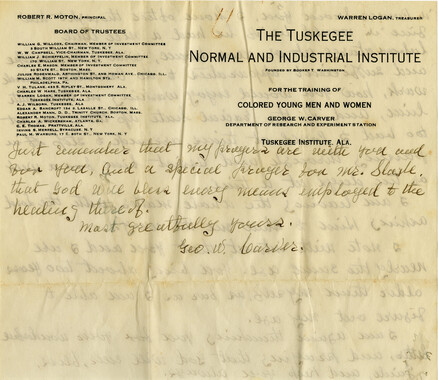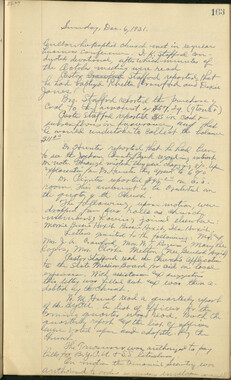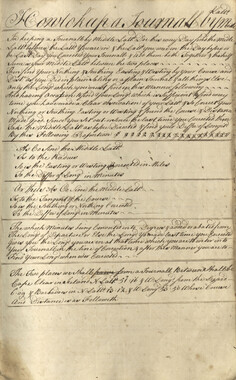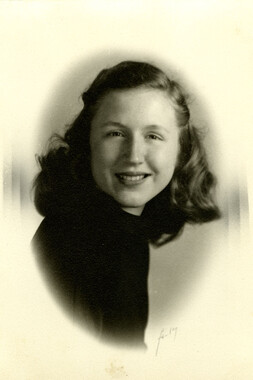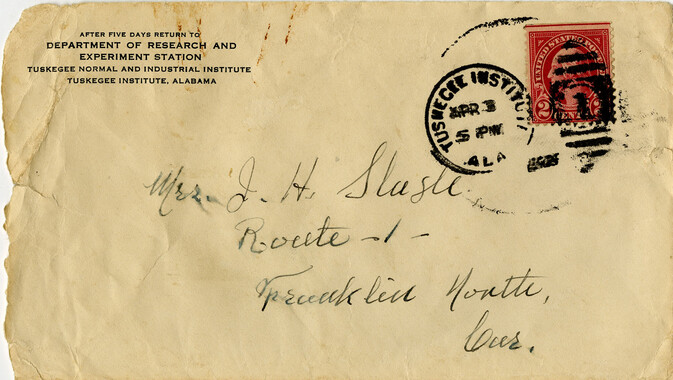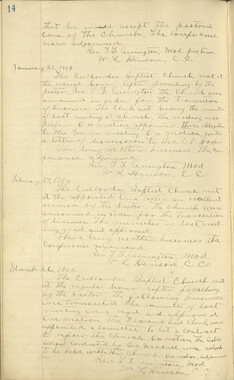Western Carolina University (5)
View all
- Civil War in Southern Appalachia (2)
- Craft Revival (11)
- Great Smoky Mountains - A Park for America (2)
- Highlights from Western Carolina University (4)
- Picturing Appalachia (7)
- Canton Champion Fibre Company (0)
- Cherokee Traditions (0)
- Horace Kephart (0)
- Journeys Through Jackson (0)
- LGBTQIA+ Archive of Jackson County (0)
- Oral Histories of Western North Carolina (0)
- Stories of Mountain Folk (0)
- Travel Western North Carolina (0)
- Western Carolina University Fine Art Museum Vitreograph Collection (0)
- Western Carolina University Herbarium (0)
- Western Carolina University: Making Memories (0)
- Western Carolina University Publications (0)
- Western Carolina University Restricted Electronic Theses and Dissertations (0)
- Western North Carolina Regional Maps (0)
- World War II in Southern Appalachia (0)
University of North Carolina Asheville (0)
View all
- Faces of Asheville (0)
- Forestry in Western North Carolina (0)
- Grove Park Inn Photograph Collection (0)
- Isaiah Rice Photograph Collection (0)
- Morse Family Chimney Rock Park Collection (0)
- Picturing Asheville and Western North Carolina (0)
- Appalachian Region, Southern (6)
- Blount County (Tenn.) (1)
- Cherokee County (N.C.) (1)
- Great Smoky Mountains National Park (N.C. and Tenn.) (1)
- Haywood County (N.C.) (4)
- Jackson County (N.C.) (4)
- Asheville (N.C.) (0)
- Avery County (N.C.) (0)
- Buncombe County (N.C.) (0)
- Clay County (N.C.) (0)
- Graham County (N.C.) (0)
- Henderson County (N.C.) (0)
- Knox County (Tenn.) (0)
- Knoxville (Tenn.) (0)
- Lake Santeetlah (N.C.) (0)
- Macon County (N.C.) (0)
- Madison County (N.C.) (0)
- McDowell County (N.C.) (0)
- Mitchell County (N.C.) (0)
- Polk County (N.C.) (0)
- Qualla Boundary (0)
- Rutherford County (N.C.) (0)
- Swain County (N.C.) (0)
- Transylvania County (N.C.) (0)
- Watauga County (N.C.) (0)
- Waynesville (N.C.) (0)
- Yancey County (N.C.) (0)
- Artifacts (object Genre) (5)
- Crafts (art Genres) (5)
- Letters (correspondence) (4)
- Minutes (administrative Records) (1)
- Photographs (3)
- Portraits (1)
- Publications (documents) (8)
- Sound Recordings (1)
- Transcripts (1)
- Aerial Photographs (0)
- Aerial Views (0)
- Albums (books) (0)
- Articles (0)
- Biography (general Genre) (0)
- Cards (information Artifacts) (0)
- Clippings (information Artifacts) (0)
- Depictions (visual Works) (0)
- Design Drawings (0)
- Drawings (visual Works) (0)
- Envelopes (0)
- Facsimiles (reproductions) (0)
- Fiction (general Genre) (0)
- Financial Records (0)
- Fliers (printed Matter) (0)
- Glass Plate Negatives (0)
- Guidebooks (0)
- Internegatives (0)
- Interviews (0)
- Land Surveys (0)
- Manuscripts (documents) (0)
- Maps (documents) (0)
- Memorandums (0)
- Negatives (photographs) (0)
- Newsletters (0)
- Newspapers (0)
- Occupation Currency (0)
- Paintings (visual Works) (0)
- Pen And Ink Drawings (0)
- Periodicals (0)
- Personal Narratives (0)
- Plans (maps) (0)
- Poetry (0)
- Postcards (0)
- Programs (documents) (0)
- Questionnaires (0)
- Scrapbooks (0)
- Sheet Music (0)
- Slides (photographs) (0)
- Specimens (0)
- Speeches (documents) (0)
- Text Messages (0)
- Tintypes (photographs) (0)
- Video Recordings (physical Artifacts) (0)
- Vitreographs (0)
- Cataloochee History Project (1)
- Love Family Papers (1)
- A.L. Ensley Collection (0)
- Appalachian Industrial School Records (0)
- Appalachian National Park Association Records (0)
- Axley-Meroney Collection (0)
- Bayard Wootten Photograph Collection (0)
- Bethel Rural Community Organization Collection (0)
- Blumer Collection (0)
- C.W. Slagle Collection (0)
- Canton Area Historical Museum (0)
- Carlos C. Campbell Collection (0)
- Cherokee Studies Collection (0)
- Daisy Dame Photograph Album (0)
- Daniel Boone VI Collection (0)
- Doris Ulmann Photograph Collection (0)
- Elizabeth H. Lasley Collection (0)
- Elizabeth Woolworth Szold Fleharty Collection (0)
- Frank Fry Collection (0)
- George Masa Collection (0)
- Gideon Laney Collection (0)
- Hazel Scarborough Collection (0)
- Hiram C. Wilburn Papers (0)
- Historic Photographs Collection (0)
- Horace Kephart Collection (0)
- Humbard Collection (0)
- Hunter and Weaver Families Collection (0)
- I. D. Blumenthal Collection (0)
- Isadora Williams Collection (0)
- Jesse Bryson Stalcup Collection (0)
- Jim Thompson Collection (0)
- John B. Battle Collection (0)
- John C. Campbell Folk School Records (0)
- John Parris Collection (0)
- Judaculla Rock project (0)
- Kelly Bennett Collection (0)
- Major Wiley Parris Civil War Letters (0)
- Map Collection (0)
- McFee-Misemer Civil War Letters (0)
- Mountain Heritage Center Collection (0)
- Norburn - Robertson - Thomson Families Collection (0)
- Pauline Hood Collection (0)
- Pre-Guild Collection (0)
- Qualla Arts and Crafts Mutual Collection (0)
- R.A. Romanes Collection (0)
- Rosser H. Taylor Collection (0)
- Samuel Robert Owens Collection (0)
- Sara Madison Collection (0)
- Sherrill Studio Photo Collection (0)
- Smoky Mountains Hiking Club Collection (0)
- Stories of Mountain Folk - Radio Programs (0)
- The Reporter, Western Carolina University (0)
- Venoy and Elizabeth Reed Collection (0)
- WCU Gender and Sexuality Oral History Project (0)
- WCU Mountain Heritage Center Oral Histories (0)
- WCU Oral History Collection - Mountain People, Mountain Lives (0)
- WCU Students Newspapers Collection (0)
- Western North Carolina Tomorrow Black Oral History Project (0)
- William Williams Stringfield Collection (0)
- Zebulon Weaver Collection (0)
- Education (1)
- Maps (1)
- Pottery (1)
- Weaving -- Appalachian Region, Southern (5)
- African Americans (0)
- Appalachian Trail (0)
- Artisans (0)
- Cherokee art (0)
- Cherokee artists -- North Carolina (0)
- Cherokee language (0)
- Cherokee pottery (0)
- Cherokee women (0)
- Church buildings (0)
- Civilian Conservation Corps (U.S.) (0)
- College student newspapers and periodicals (0)
- Dams (0)
- Dance (0)
- Floods (0)
- Folk music (0)
- Forced removal, 1813-1903 (0)
- Forest conservation (0)
- Forests and forestry (0)
- Gender nonconformity (0)
- Great Smoky Mountains National Park (N.C. and Tenn.) (0)
- Hunting (0)
- Landscape photography (0)
- Logging (0)
- Mines and mineral resources (0)
- North Carolina -- Maps (0)
- Paper industry (0)
- Postcards (0)
- Railroad trains (0)
- Rural electrification -- North Carolina, Western (0)
- School integration -- Southern States (0)
- Segregation -- North Carolina, Western (0)
- Slavery (0)
- Sports (0)
- Storytelling (0)
- Waterfalls -- Great Smoky Mountains (N.C. and Tenn.) (0)
- Wood-carving -- Appalachian Region, Southern (0)
- World War, 1939-1945 (0)
- Sound (1)
- StillImage (17)
- Text (10)
- MovingImage (0)
Jackson County Public Schools 1853-1954
Item
Item’s are ‘child’ level descriptions to ‘parent’ objects, (e.g. one page of a whole book).
-
-
State. We expect to do somethig with this next year, thus giving our Negroes a school of which they can be proud and which will be equal in all respects to those for white children. Until recently the county's investment in the school for Negro children has been considerably larger per student than has its investment for white children. A full and complete program for this county would have cost about $1,500,000. We have had approximately $823,000 to work with. Our methods have been critized by many but it has been dictated and forced by community demands for small schools at its children's doorsteps. We attempted to hold meetings with community delegations present but found it impossible to get agreement. We have had petitions from all sides and then other petitions to take their names from previous petitions. In every case of consolidation we have had wonderful cooperation from the majority of citizens in the community. Only in two or three cases have we had threats of court action to prevent consolidation and in only one have we had threats of physical violence or worse. In each and every case we have tried to place the children and the benefits to them as our main consideration. This has been true when considering the buildings, the teachers, the instructional programs and all other problems coming before us. It is amusing, sometimes, and interesting at all times. Each meeting brings new problems, some can be solved immediately, others have to be worked out and some have to be referred to Raleigh (as when we were recently accused of racial discrimination at Qualla). In closing I would like to say that to me the most challenging problem of all is the general lack of direct interest on the part of the majority of people, especially the leaders. Most of the delegations which appear before the Board of Education are not the leaders of the community from which they come; their leaders seem to be prone to "let George do it." To be sure there is interest in the P. T. A., bands and things of that nature, but it is usually while the parents have children in school, and as soon as the children leave or finish school the parents' interest is dropped. At the present time I will venture to say that the interest is greater than at any time in many, many years. But we would like to see a fighting, driving, creative interest in all the schools of the county. A desire to make the schools of Jackson outstanding in the State, not just a temporary interest in the activities of our school while ones children attend that school. An interest of this kind would drive all thoughts of politics out of the schools. Everyone would want only a good janitor or bus driver, not just a few wanting to reward a party faithful. It would not make any difference whether the principal or the teacher belonged to one party or the other, just so they performed their duties properly, honestly and conscientiously. The superintendent would be freed from having to bother with half the visitors to his office. Try to imagine what could have been done in this county if 20 years ago the Board of Education and the people, jarents of the children attending the schools, had been determined to see that every school built in the county had to meet the State Department of Education requirements for accreditization. The original Qualla, Savannah, and Webster schools were a good start, they are excellent buildings, but too small. We have enlarged the first two, one is now accredited, the other should be soon. Webster is adequate for an excellent elementary school but much too crowded with its small high school. Yet they have said for three or four years, "Don't take our school from us," meaning the high school but leading the masses of the people to believe that it is the entire school. What are we to do? As Mr. Credle said in his report of 1947: "Major expansion is necessary at both Sylva and Webster. The form that this expansion should take challenges our best thoughts." A recent applicant for the principalship at Sylva Central high school stated that the Board of Education had acted very wise politically in planning the building program; by building the elementary schools first, thus giving all communities in the county some of the building fund money. Nothing could have been more remote to us during our planning. Our aim was to better the advantages for the most children first and then trust that a benevolent legislature and an increasing county tax valuation would permit us to offer equal advantages to the select groups who go on into and through high school. Schools must be a never ending job. If the county continues to grow the schools must, and if the schools improve, their graduates will see to it that the county does grow. 27
Object
Object’s are ‘parent’ level descriptions to ‘children’ items, (e.g. a book with pages).
-
This 44-page booklet discusses many aspects of Jackson County Public Schools over a hundred year period from 1853-1954. Photographs of schools are included.
-
